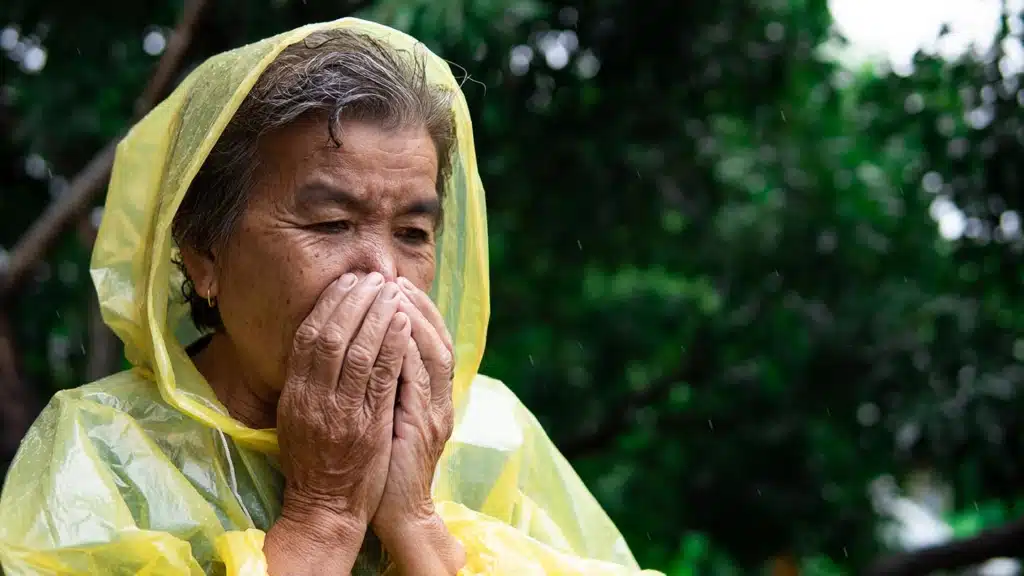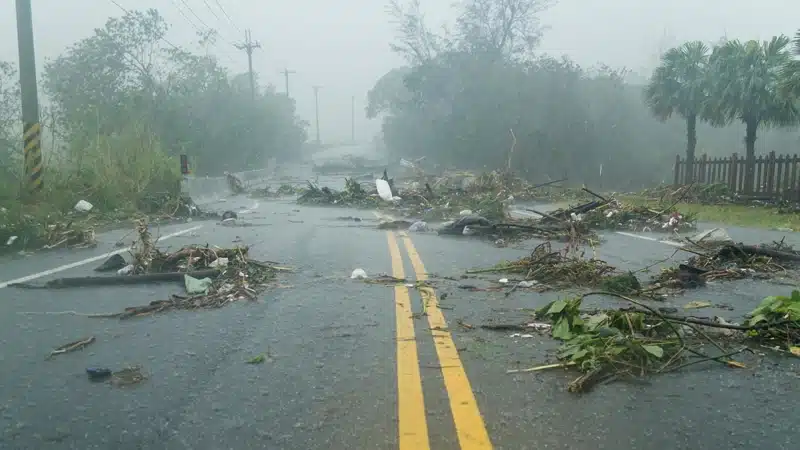This article originally published on Daily Mail
September 28, 2022
Allergist Dr. Robert McDermott warns about the hidden health risks of hurricanes battering the American coast
Hurricane Ian is ripping through southern Florida putting thousands of homes underwater and causing power outages across large parts of the state.
The up to 155mph storm is expected to wreak more havoc in the sunshine state than Hurricane Andrew, which killed 65 people in Louisiana, Florida and the Bahamas after it made landfall in 1992.
Dozens of Americans die directly from hurricanes every year, with many more put into hospitals with injuries from falling debris or being launched through the air by gusts. But other than the obvious threats to life and livelihoods, doctors are now warning of the hidden health risks from extreme storms.
‘Super-asthma’
‘Super-asthma’ is a phenomenon that can occur after a hurricane, Dr Robert McDermott an allergy expert based in Colorado told DailyMail.com. Extreme storms sweep up pollen and other respiratory allergens which can irritate the lungs of asthmatics, making symptoms worse.
And as flood waters surge into treatment plans, they will mix chemicals, human waste and maybe even dead animals with drinking water making it unsafe to use.
Experts warn that tons of pollen can be sucked into the air by hurricanes — and even broken into small shards — as the extreme weather sweep through. This raises the risk of asthma attacks, with several studies showing they spike during and just after thunderstorms.

This phenomena is known as thunder asthma or thunder hayfever. Dr McDermott, who is also part of the AllerVie Health Network, told DailyMail.com, “We know that wind events — like thunderstorms — and the wind current can pick up quite a bit of pollen. Hurricanes are a bit different, but we can anticipate people will have more health issues with asthma.”
Hay fever sufferers are at risk too, but so are about 60 percent of asthmatics whose symptoms are triggered by pollen.
Dr McDermott said asthma sufferers should ensure they have at least two inhalers on hand. Each lasts several months giving sufferers ample time to replace one. He added they should have spare medication and inhalers on hand because damage to the area could leave them unable to buy more for weeks.
The Centers for Disease Control and Prevention (CDC) recommends having an at least three-day supply of medications.
After a hurricane, asthma sufferers may also be at higher risk because pollen remains in the air. Similarly, the damp areas in houses will quickly cause mold to start forming — also a risk for asthma sufferers. Emotional impacts of the storm, such as the destruction of property, among other factors may also raise the risk of suffering asthma. About 25 million Americans have asthma, or one out of every 13 citizens. Five million of them are children.


